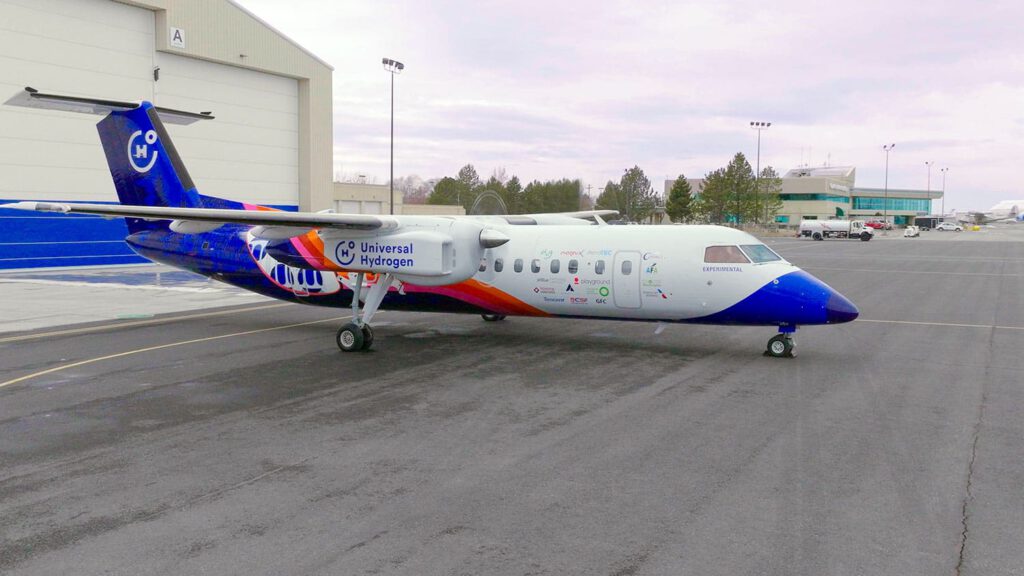Every day we wake up, drink some coffee, get ready for work and check on the latest UFOs shot down over North America. So here’s a handful of stories from around the tech world condensed to fit into that first cup. These are things you need to know before you step foot out of your door (or in front of a webcam) and into the real world this morning.
Just sit back, grab some Joe, and start your morning off right with a few “Quick Bytes” from Innovation & Tech Today.
Turns Out Our Skies Are Infested With UFOs
Since the Feb. 4 shootdown of a Chinese spy balloon that traversed the continental U.S. and lingered over nuclear installations, three more high altitude UFOs have been downed by American fighter jets.
In just three days, Feb. 10, 11 & 12, smaller objects were shot down over the northern coast of Alaska, central Yukon and Lake Huron. All three were reported to be at altitudes below 40,000 feet and posing a hazard to civilian air traffic.
The origin of the objects, the last of which was reported to be octagonal in shape and flying at just 20,000 feet, have not been determined. But the New York Times reported about an advanced, but little noticed, Chinese program to develop high atmosphere balloons for surveillance and military purposes. The story states that in 2019, one of China’s top aeronautical scientists bragged that they had circumnavigated the globe at 60,000 feet, passing just south of the Texas border.
Microsoft’s ChatGPT-Powered Bing Adds One-Million to Waitlist
After a decade of failing to gain traction against Google, Microsoft’s Bing search engine may finally have a hit. Officials in Redmond announced that in the last 48 hours, over one-million users were added to the waitlist for Bing powered by ChatGPT.
ChatGPT gained over 100 million users in just two months, becoming the fastest-growing app in history. Now it’s powering Microsoft’s deployment of AI technology for Bing.
Microsoft is the major investor in OpenAI, having initially invested one-billion dollars, and most recently pouring in another $10billion.
Currently, if you sign up for Bing and attempt to use the new chat box feature, you will be redirected to a page that will tell you to install Microsoft’s Edge browser, or install an extension for other browsers, such as Chrome or Safari. Then you wait.
Bing is currently used by only 3% of search users, compared to 92% for Google.
Blue Origin Quietly Announces Big Plans for the Moon
In a Friday blog post, Blue Origin announced its Blue Alchemist program that will allow the manufacture of solar panels on the moon, using only materials from the lunar surface. The engineering is a process known as “molten regolith electrolysis”.
Oddly, Bezos’ company didn’t even promote the announcement on its Twitter page.
Over the last two years, Blue Origin used simulated lunar soils to manufacture both solar cells and transmission wires.
Through the process, Iron, silicon and aluminum are electrically heated to over 1600° Celsius and produce a silicone with 99.999% purity. The silicone is then used for the protective glass cover and the byproducts of the reaction to fabricate the solar cells. The panels are expected to withstand a decade or longer of lunar exposure.
Blue Origin said it would market the technology to NASA for use in its Artemis program, which intends to return humans to the Moon. Unlike the Apollo program, Artemis is intended for extended stays to build infrastructure, such as power generation.
FAA Approves Testing a Hydrogen-powered Airliner

The Federal Aviation Administration has granted California-based startup, Universal Hydrogen, a special airworthiness certificate for an experimental hydrogen-powered airliner. The test plane is allowed to fly out of the Grant County International Airport in Moses Lake, Washington.
The Dash 8-300 is powered by a megawatt-class hydrogen fuel cell that emits zero carbon. Universal Hydrogen says it expects the design to be certified and ready for commercial passenger flights by 2025.
“We are simultaneously providing a pragmatic, near-term solution for hydrogen infrastructure and delivery, as well as for converting existing passenger aircraft to use this lightweight, safe, and true-zero-emissions fuel,” said Paul Eremenko, co-founder and CEO of Universal Hydrogen.
The design does not use hybrid batteries, instead the power is transmitted directly from the fuel cells to the electric-powered turboprop. This greatly reduces the weight and extends the life cycle of the plane. If successful, the Dash 8-300 would carry at least 40 passengers, which would make it the largest airplane ever powered by a hydrogen fuel cell.










